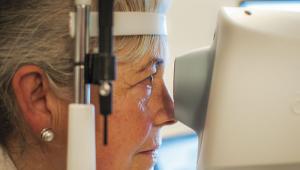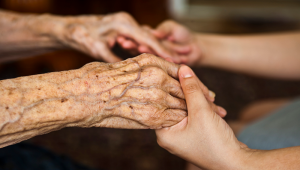People over the age of 65 who live alone are 50% more likely to go to A&E than those who live with someone else, according to research published today.
Over-65s living alone are also at increased risk of being admitted to hospital as an in-patient and more likely to visit their GP.
Twenty-one per cent of those living alone visit their GP at least once a month compared to just 14% of those who live with someone else.
The study said that the link between loneliness and increased use of health services might be a result of a lack of immediate support at home.
Kathryn Dreyer, principal data analyst at the Health Foundation, said: “Today’s findings underline the fact that older people living alone have poorer health than those living with others, as well as more intensive health care needs.
“With the number of older people living alone set to continue to grow, more needs to be done to help people stay healthy and to offer more support and care in the community.”
Dreyer said almost a fifth of people in the UK report feeling lonely, which increases their risk of poor health.
The think-tank said there was potential to reduce pressure on A&E departments and GP services and called for “further measures” to tackle loneliness and social isolation in the forthcoming long-term plan for the NHS.
Laura Alcock-Ferguson, executive director of the Campaign to End Loneliness, said: “There are over 2.2 million people aged 75 and over living alone in Great Britain – an increase of almost a quarter over the past 20 years.
“Urgent preventative action is needed to meet the needs of this group.”
The study looked at 1,447 patients over the age of 64 living in 1,275 households who were registered to a large general practice in south east London.
It found that more than one in four older people living alone have a mental health condition, compared to one in five living with others.
Older people living alone have more long-term conditions with 50% of patients in this group having three or more long-term conditions, compared to 42.2% of older people living with others.
Naomi Phillips, director of policy and advocacy at the British Red Cross, said: “It is critical for government and the NHS to work in partnership with communities to find practicable ways to tackle loneliness and prevent people of all ages from becoming chronically lonely, which we know can have a devastating impact on their mental and physical health.”
A Department of Health and Social Care spokesperson said: “Loneliness can be detrimental to our health and we are taking action to tackle it, investing in social prescribing schemes so that all GPs in England will be able to refer patients experiencing loneliness to community activities and voluntary services by 2023.
“This is key to the Health Secretary’s prevention vision for our healthcare system, setting out how we can use the power of local communities to keep people healthy and happy, backed by an additional £20.5 billion a year for the NHS by 2023/24.”











